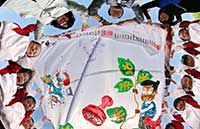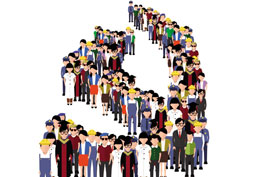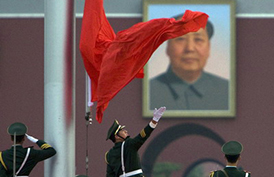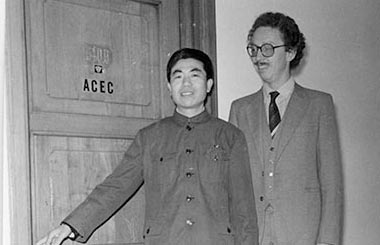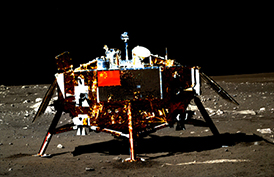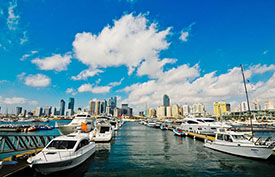Anti-corruption battle set to be intensified
[2016-07-04 09:14]Anti-corruption battle set to be intensified
CPC membership becomes more diverse
[2016-07-01 08:07]In 1921, the Party had a mere 50 members, but now it has more than 88 million, resulting in higher standards and more applicants from a wide range of backgrounds. Peng Yining reports.
Event highlights work of CPC diplomatic arm
[2016-06-26 23:19]A low-key, mysterious presence for 65 years, the Communist Party of China’s diplomatic organ saw dozens of ordinary people invited to its headquarters on Sunday to witness a talk.
CPC leadership on reform: vested interests to be challenged
[2016-06-27 21:44]A top-level reform group headed by President Xi Jinping has likened the country's reform drive to a "revolution" which challenges vested interests, while calling for real action to keep it going.
Understanding why the CPC endures
[2016-06-04 07:33]The Communist Party of China, the CPC, still mystifies foreigners. As the 95th anniversary of its founding on July 1, 1921 approaches, it's worth wondering why the lingering mystery. Two unambiguous facts confound the critics - the CPC has led China in its historic, sustained development, and the CPC continues to be, after 67 years, China's uncontested ruling party. The two facts are not unrelated.
Belgian records China's urban transformation
[2016-06-17 07:55]A Belgian business strategist who came to Beijing more than three decades ago has found time to maintain a photographic record of the changes in the Chinese capital.
Development of Science and Technology in New China
[2016-06-15 14:14]Modern Development In 1900, China had no modern science and technology at all—fewer than 10 people in all China understood calculus.
Development of Education in New China
[2016-06-15 14:17]Before the People's Republic of China was founded in 1949, schools were not properly distributed.
TO Be More and More Prosperous
[2016-06-15 14:11]Old China's backward economy worsened through long years of war. The history of economic development in the People's Republic of China since is one of arduous struggle by the Chinese people.
138,867 officials punished in 3-year frugality campaign
[2015-12-04 15:07]Three years have past since the austerity codes took effect. As of the end of October, some 104,900 violations have been reported nationwide and over 138,800 officials were subject to disciplinary action.
Ideological foundation of the CPC
[2012-11-01 09:49]The Communist Party of China (CPC) takes Marxism-Leninism, Mao Zedong Thought, Deng Xiaoping Theory and the important thought of Three Represents as its guide to action and theoretical bases.
